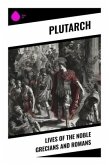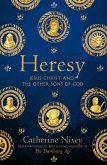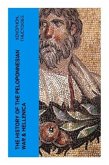In "The Jewish Wars," Flavius Josephus presents a comprehensive account of the Jewish revolt against Roman dominion from 66 to 73 CE, intricately weaving historical narrative with firsthand observation. His literary style deftly combines a historian's meticulous detail with the rhetorical flair of a skilled storyteller, as he illuminates the socio-political complexities of Judea and the cultural tensions that precipitated conflict. Josephus writes with a dual purpose: to document the events for posterity and to advocate for understanding between the Jewish people and their Roman conquerors, imbuing the text with a poignant sense of tragedy as he reflects on the themes of fate and free will. Josephus, a Jewish general turned Roman citizen, provides an intimate perspective shaped by his experiences as both a participant and a witness to the tumult of war. His unique position as a member of the Jewish elite, combined with his later role as an historian within the Roman framework, informs his narrative-a translation of cultural identity amid the chaos of war. His complex background enables him to explore the motivations and beliefs of both his compatriots and the imperial forces, creating a synthesis of perspectives that enhances the significance of his account. "The Jewish Wars" is essential reading for anyone interested in the dynamics of cultural conflict, historical methodology, and the timeless struggles between autonomy and oppression. Josephus' work not only serves as a historical document but also resonates with contemporary themes of national identity and resilience. This book invites readers to engage with the pivotal moments that shape a civilization's legacy and to reflect on the broader implications of war in human experience.
Bitte wählen Sie Ihr Anliegen aus.
Rechnungen
Retourenschein anfordern
Bestellstatus
Storno








